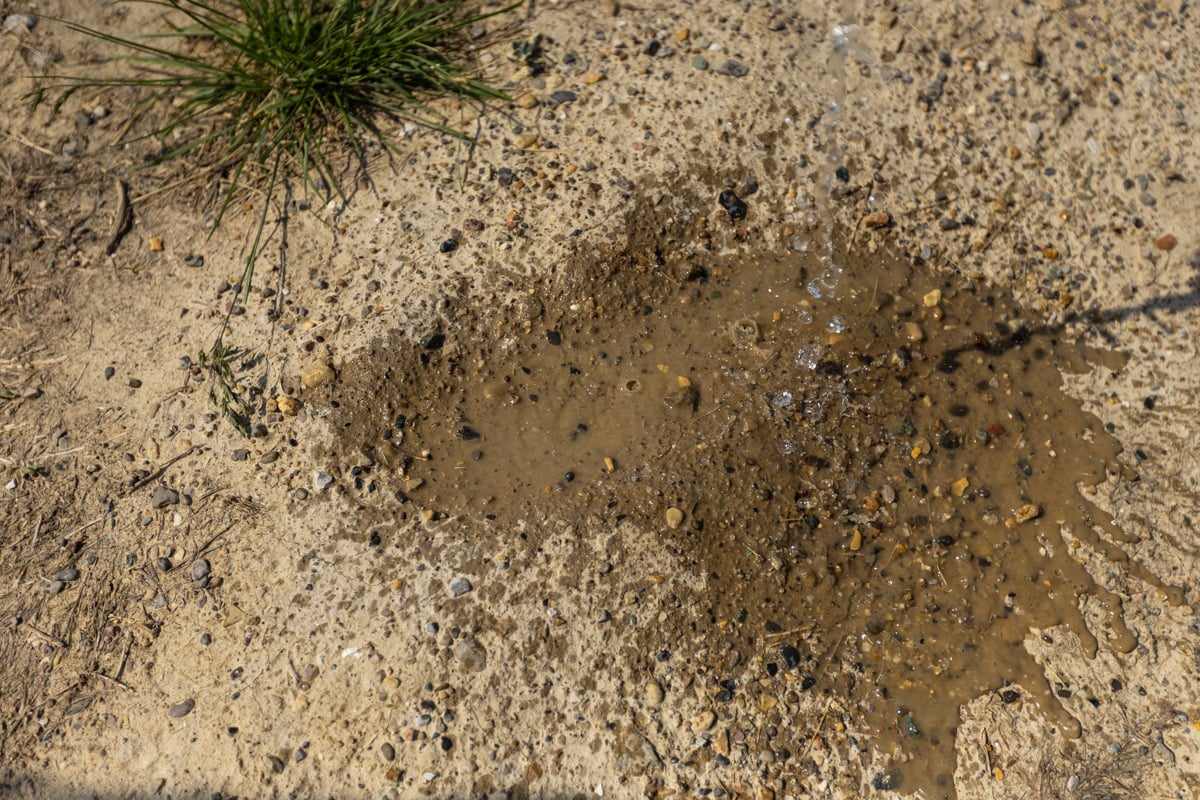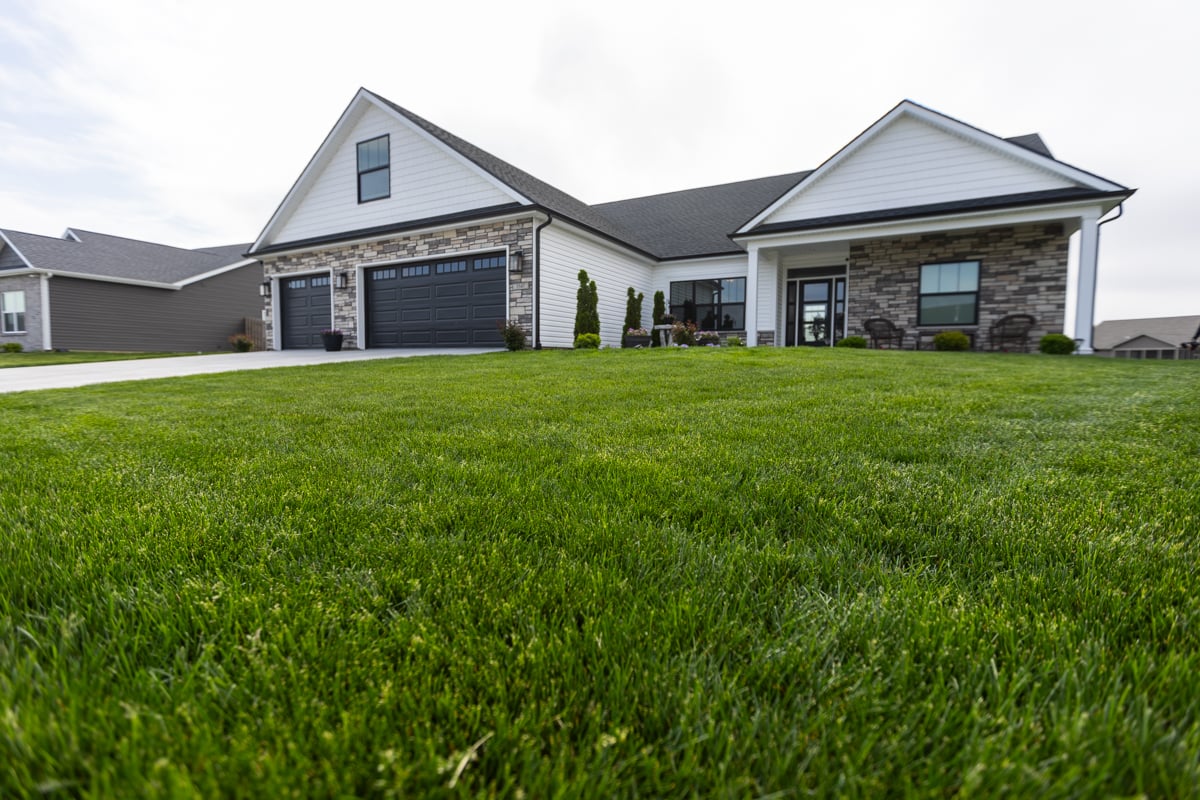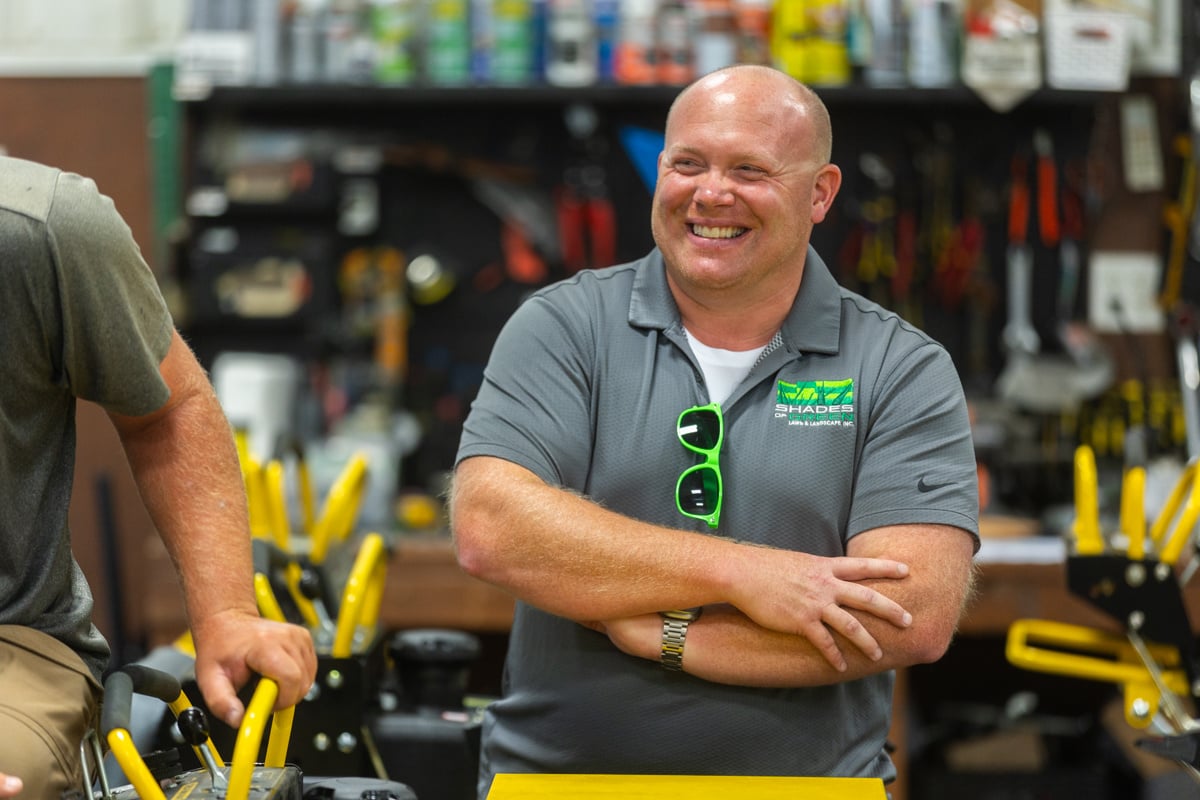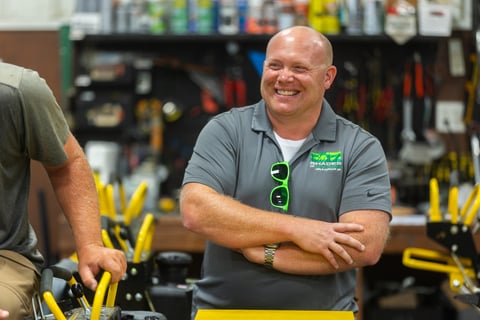



With summer winding down and cooler weather creeping in, it’s not always clear exactly what your grass needs.
Should you keep watering? Cut it shorter? Stop fertilizing?
Fall lawn care can end up feeling like a guessing game. However, this season is one of the most important times to care for your turf. Whether your goal is fewer weeds, thicker grass next spring, or just a prettier looking lawn, the steps you take now make all the difference.
Let’s walk through our top five fall lawn care tips so you know exactly what your lawn needs.
Whether you are hauling kids to school or prepping for the weekend tailgate, getting outside to rake that fall leaf pile is likely not something you are very excited about. But surprisingly, your lawn actually loves fall. It’s the season where cool-season grasses get to breathe a sigh of relief after the hottest and driest part of the year in Indiana.
If your lawn could talk, it would tell you that fall is its favorite time to really get things done. Here’s why fall lawn care is such a big deal:
So, left wondering how to take care of your lawn in the fall? Let’s get into it.
Notice a few leaves on your lawn? No big deal. But if leaves start to pile up, they block the sunlight that your grass desperately needs. They can also trap moisture, which can lead to dead spots and disease. To prevent these issues, be sure to bag up and haul off your leaves - or you can mulch your leaves back into the turf during your regular mowing.
 While mowing sounds pretty simple, this tip is one of the most important fall lawn care steps. Keep mowing until your grass stops growing, but try to resist the urge to cut it extra short before winter.
While mowing sounds pretty simple, this tip is one of the most important fall lawn care steps. Keep mowing until your grass stops growing, but try to resist the urge to cut it extra short before winter.
Cutting too low reduces the surface area of the grass and doesn’t give it the time to recover it needs. Your lawn gets accustomed to being cut to a certain height and simply doesn’t have the energy and time to recover properly in the fall if you scalp it. In addition, if you cut too low, your grass loses out on the photosynthesis it needs, which can leave your lawn vulnerable.
 As fall weather cools down and rain picks up, your lawn needs less water. If you have an automatic irrigation system, turn it down as we enter the fall season. Overwatering your turf can lead to serious lawn problems going into the winter and spring.
As fall weather cools down and rain picks up, your lawn needs less water. If you have an automatic irrigation system, turn it down as we enter the fall season. Overwatering your turf can lead to serious lawn problems going into the winter and spring.
It is extremely important to get that first application of fall fertilizer down quickly and early in the season. It helps roots grow deeper and stronger, thickens the turf, and gives your lawn the nutrients it needs to start healing and preparing for winter.
At Shades of Green, we recommend three fall fertilizer applications. The second application focuses on weed control. Fall treatments are extra effective because weeds are absorbing nutrients, just like your grass does, to prepare for winter. This means they absorb herbicides better as well.
The final round of fertilizer helps your lawn store energy through the winter and green up faster in the spring. The winterizer we apply includes a pre-emergent herbicide as well to prevent winter and early spring weeds before they even start.
These two fall lawn care steps go hand in hand. Together, aeration and overseeding are one of the most powerful things you can do for your grass. Aeration relieves the compacted soil, improves airflow, and allows water and nutrients to reach the roots. Once the soil is opened up, overseeding gives new grass the perfect conditions to take root and fill in thin or bare areas. It is an essential part of our fall lawn treatment plan, especially if it hasn’t been done recently or your lawn is looking extra tired.
In the spring, lawn care tends to get all the hype. And it makes sense - you’ve been waiting for those gray days to end and are ready for some serious green. The birds are chirping, and you are ready to fire up that mower. However, when it comes to long-term impact on your turf? Fall is the clear winner.
Spring lawn treatments are just about jumpstarting your lawn. Your grass is waking up from winter, the weather is all over the place here in Indiana, and timing is always tricky. Fertilizer in the spring needs to give your lawn enough of a boost to get growing, but be careful not to push too quickly. And because weeds love spring, those early-season treatments often attack weeds and feed your lawn.
While spring fertilizer applications are certainly important, fall lawn care is where the health of your lawn is built. Fall lawn care focuses mostly on strengthening your turf and what’s below the surface. Your grass is still actively growing, and it is storing up nutrients before winter sets in. So, while spring is all about waking up, fall is about taking your lawn to the next level.
Fall lawn care is your secret weapon to a vibrant and healthy lawn that really shines when spring arrives. With so many lawn care steps to be completed, from fertilizing to aerating, it pays to have a team that knows the ins and outs of Indiana lawns.
That’s where our team at Shades of Green comes in. We bring experience, customized care, and a passion for helping your lawn reach its full potential. Think of us as your trusted fall coach on the sidelines, calling the right plays to power up your lawn and lead it to a winning season.
Need a hand with lawn care in Lafayette, Carmel, Noblesville, Westfield, or Zionsville? Get started today by filling out our contact form.

Cory is the heart and soul of Shades of Green. His dedication to doing right for our customers has been the driving force behind the company's success. With a degree in Turf Science from Purdue University, Cory continually strives to craft the best treatment plans using the latest technologies and innovative products, ensuring top-notch results for every client.





